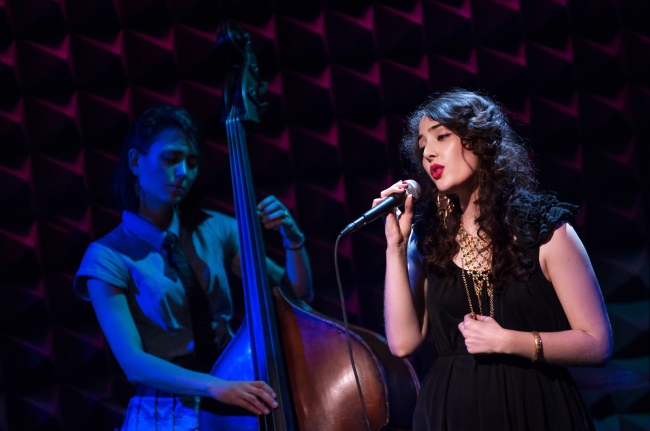“I want my audience to feel that they are constantly traveling with their ears.” –Tatiana Eva-Marie
Read the interview “Tatiana Eva-Marie on the harmonious fusion of Romani ‘Gypsy’ music” in Quail Bell Magazine and find out what she has to say about Romani music and representation, how her multicultural heritage shapes her art, growing up in theatres and concert halls all over Europe, the Music Explorer competition/documentary (click the heart to vote for her!), and her life in the Avalon Jazz Band in New York City. You can also listen to some beautiful songs from the competition.
JR: How do you think the Romani arts scene can support the fight for Romani rights and representation?
TEM: By showing an open and generous culture, not magical creatures, not chicken thieves, but real people. I suppose it is somewhat natural to be afraid of foreign things, but in the age of internet and communication there can be no excuse for that anymore. We are all so mixed now and most people can trace their heritage back to more than one country. We should all embrace our differences and be proud of our origins. We should try and educate the people around us, share our knowledge with each other. Art is a wonderful way of doing that and has always been a bridge between people.
Opre Roma! Find out more at http://www.quailbellmagazine.com/the-real/interview-jazz-singer-tatiana-eva-marie

